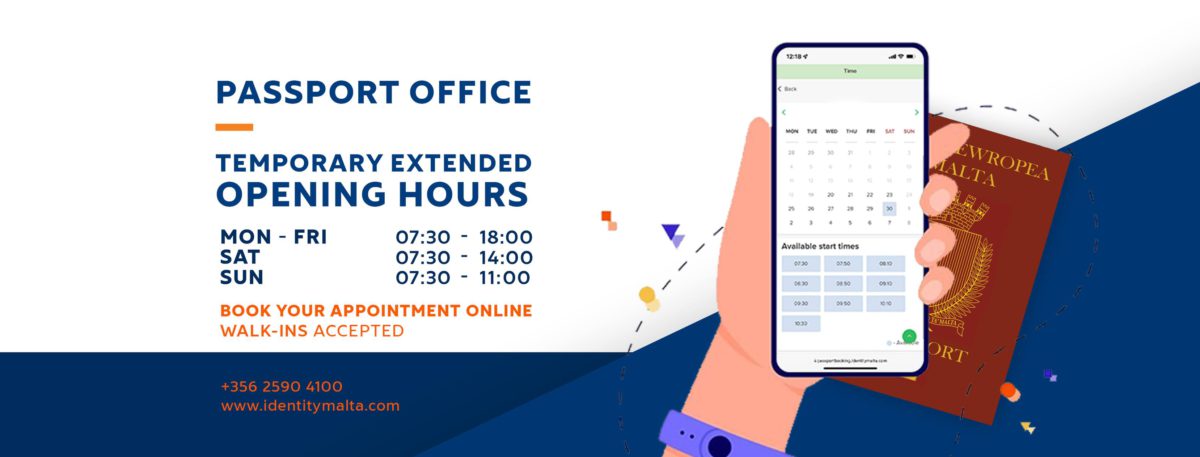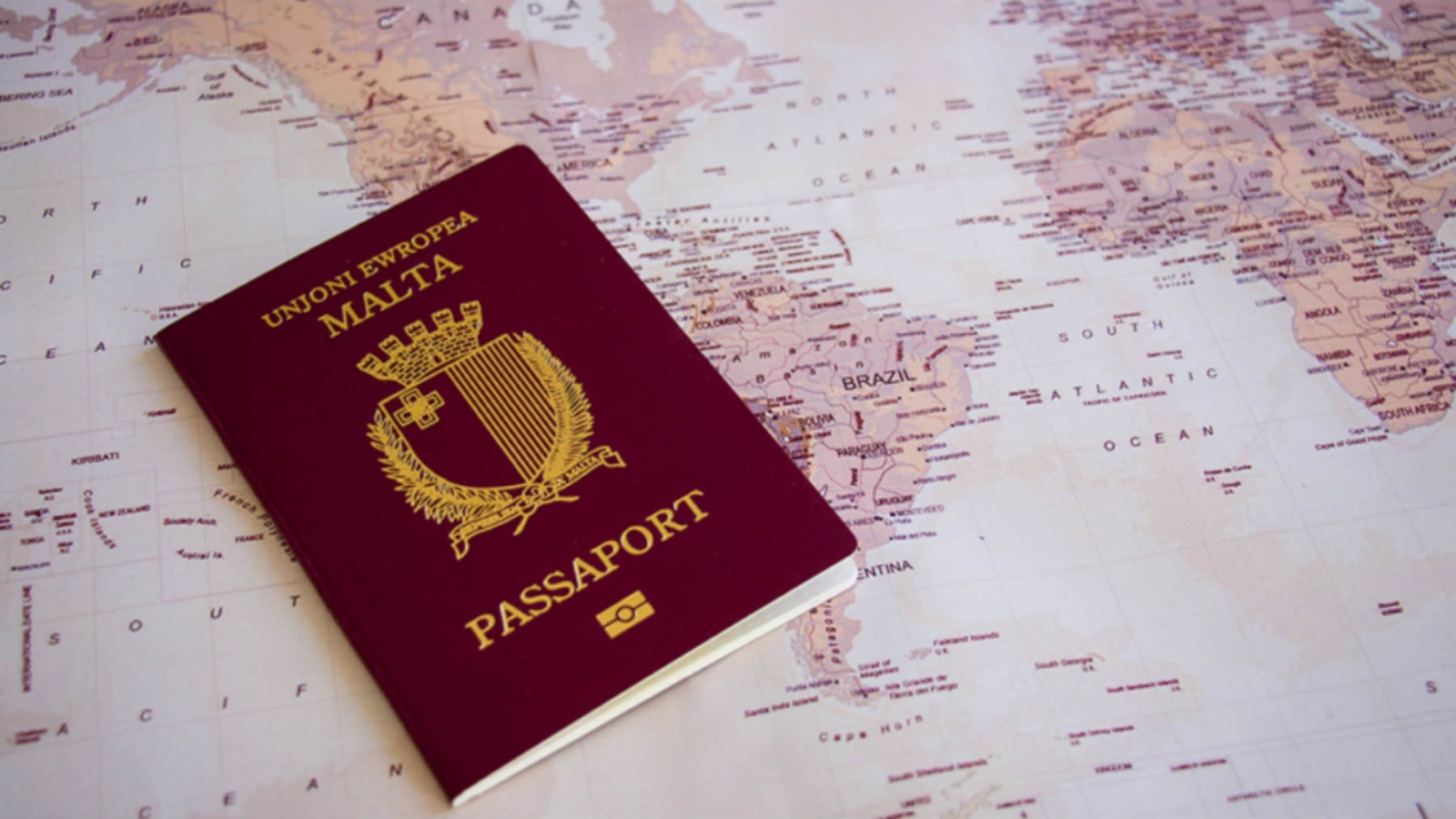Malta’s passport office has temporarily extended its opening hours, including opening on Sundays, in response to the excessively long queues of people waiting to submit applications.
In a Facebook post by Identity Malta, it was revealed the new opening hours will be:
Monday to Friday from 7.30am to 6pm, Saturdays from 7.30am to 2pm and Sundays from 7.30am to 11am.
The new opening hours were described as temporary, but no timelines were provided about when the normal opening hours will resume.

Social media has been awash with complaints about hours long queues at Malta’s passport office. It would appear that a return of travel and the release of post-pandemic pent up demand for travel has left the passport office inundated with applicants for new passports or for the renewal of passports.
And, it also appears that while consumers are ready to go on holiday again – everything from renewing your passport to boarding a plane on time with checked-in luggage safely making it onto said flight has become increasingly difficult.
Major delays at important airports such as Amsterdam’s Schipol, London’s Heathrow and Romes’ Fiumicino due to staff shortages is wreaking havoc on the aviation industry and threatens to upend the chances for airlines and airports to recover financially after the pandemic forced a slow down in flying.
Young adults lead Malta’s tourist arrivals in May 2025
Visitors aged 25 to 44 made up the largest group of inbound tourists
Demand for electric vehicles holds strong despite €3,000 cut to government grant
Hybrid models also continue to attract buyers, despite the end of the grant
Accessible student loans scheme extended
The FSMA + scheme allows students to cover tuition fees, accommodation expenses while pursuing further education in Malta and abroad






